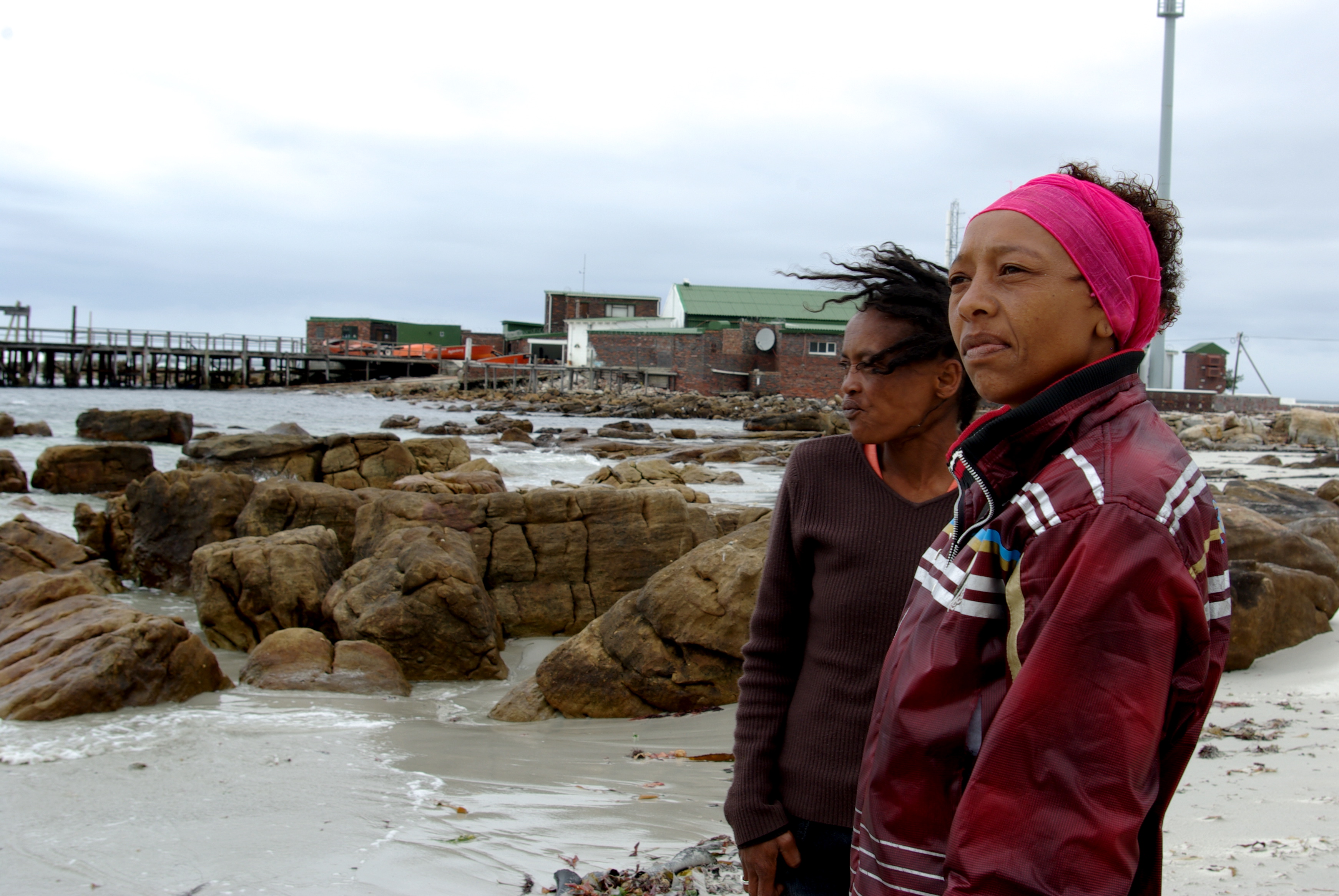
South African women fish for a living, and for their lives.
Fishing for a living is a hard life, everywhere. Subsistence fishing can be brutally difficult, but it has its dignity. For example, in Durban, on the east coast of South Africa, women and men have been subsistence fishing off the piers and beaches for over a hundred years. Generation after generation, they have used the skills their forebears brought when they came from India as indentured workers. Across generations and for decades upon decades, subsistence fishing brought fisherwomen and fishermen economic income as well as spiritual and cultural fulfillment.
Four years ago, that all came to a crashing close when much of the harbor was closed to fishing. On one hand, there were `security’ issues. On the other hand, there was rapid private development, referred to `expansion’. It wasn’t `expansion’. It was privatization; it was theft of public and common space. The results for the subsistence fisherwomen and fishermen were devastating, and continue to be so.
For the fisherwomen and fishermen, the act of fishing successfully, of bringing home food and some money from the sales of their day’s labor, is value. Honoring the labor of their forebears is value. Being on the water, being together, being a community, is value.
For those who occupy the commanding heights of Durban, real estate is value, and the water, the beach front, recreational fishing, have all become big business, and promise to intensify, or `expand’, in the future. For them, extraction is value.
For fisherwomen, the closure of and exclusion from public spaces has particular, gendered aspects. Fishing together off the piers provided safety. As the spaces closed, competition increased. As the competition intensified, tensions turned to violence. This occurred in an environment that was already hard on fisherwomen. Women’s subordinate position in fishing communities generally made them more vulnerable to exploitation and abuse. This has meant high levels of HIV and AIDS, drug and alcohol abuse, and violence. With the reduction of available spaces for fishing, the loss of income, increased and intensified unemployment, the daily lives of fisherwomen and of women in fishing communities predictably became more perilous and more toxic.
It’s the predictability that has to be taken into account. None of this is a surprise and none of this is a secret. It’s public policy; it’s part of the development scheme for Durban … and beyond.
During the last two decades, South African fisherwomen have organized. The South African Fisherwomen’s Association, organized by Sahra Luyt, has been on the frontline of integrating women into the fishing industries, as well as combating the increased difficulties due to climate change. There’s the Oceanview Fisherwomen’s Association, colored women from the Cape Flats who took up fishing to survive and to live with dignity, as documented in Penny Gaines’ 2002 documentary, “Strong Enough”.
That women fish for a living, and for their lives, in South Africa is well known, except at IRIN, “a service of the UN Office for the Coordination of Humanitarian Affairs”, which ran a news piece today headlined, “More support needed for South Africa’s subsistence fishermen.” The article should come with a disclaimer, “No fisherwomen were interviewed in the making of this article.” Nowhere does the article reference fisherwomen. Not even fisherfolk. Only `fishermen’ make the IRIN cut.
South African subsistence fisherwomen have always had a tough time in fishing communities. More recently, they have been under attack by State and private developers. And now they are erased by coordinators of humanitarian affairs. More support is needed for South Africa’s subsistence fisherwomen.
(Photo Credit: Lee Middleton / IPS)
